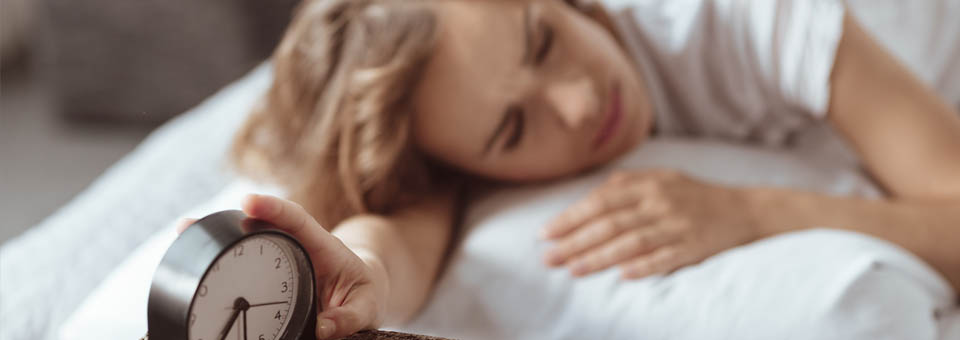I consider myself pretty lucky. I never have trouble falling asleep. In fact, my wife teases me about my ability to drop off anywhere, anytime.
On our last trip overseas, she couldn’t wake me up for the entire 8-hour flight. And she wasn’t thrilled because I was in an aisle seat and she had to climb over me to go freshen up.
But a lot of my patients aren’t as fortunate. Especially my older patients. They tell me that with each passing year, they have a harder and harder time falling — and staying — asleep.
They ask me whether it’s ever safe to take a sleep aid… and I tell them the same thing I tell you. Sleeping pills are never a good idea.
They only give you an extra 11 minutes of sleep each night1 while robbing you of your good health.
And a brand-new study backs me up on this.
In the 10-year study of nearly 1.8 million people, researchers in South Korea found that patients who used sleeping pills have a 30% higher risk of developing cancer. And with certain cancers like esophageal and liver cancer, the risk skyrocketed to nearly 60%.2
And in addition to increasing your cancer risk, sleeping pills have been linked to:3,4
- Confusion
- Memory loss
- Dizziness
- Drowsiness
- Heart attack
- Stroke
- Hip fractures
And the older the patient, the more serious the side effects and risks.
At this point in my conversation with a patient, I ask them why they haven’t tried a natural sleep aid, like the hormone melatonin. All too often, I get the same answer…
I used to take melatonin, but it stopped working after a while.
This is a common problem, and one that is easily overcome. The simple fact is that you’re taking too much. And the research
confirms what I tell my patients.A large meta-analysis of melatonin done by researchers at MIT found that the usual recommended doses of the hormone are much too high.5 And when you take too much, you induce a different biological response and the benefits fade.
This is definitely a case where less is more.
You see, your body makes melatonin naturally. It’s the main hormone of a tiny, pea-sized gland at the base of your brain called the pineal gland.
This gland regulates your sleep cycle. It works like this: Your pineal gland monitors changing light levels throughout the day and when darkness falls, it produces melatonin to bring on sleep.
The MIT team showed that melatonin is indeed an effective sleep aid — especially for older adults — but they discovered that you can’t take any more than 0.3 mg of melatonin to get the benefits.
The usual dosage recommendation of melatonin is 10 times that amount.
The researchers reported that when taken at a high dose, melatonin receptors in the brain become unresponsive. But taken at the right dosage, melatonin not only helps you sleep but also makes it easier for you to return to sleep after waking up during the night.
I recommend taking no more than 0.3 mg about a half hour before bedtime. I also suggest using a liquid or spray. They’re faster acting than the pills because they hit your bloodstream more quickly.
My 4-Step Program to Fall Asleep Fast
In addition to decreasing their melatonin amounts, I offer my patients a four-step protocol for a good night’s sleep:
- Read before bed: Most people think it’s your body that needs sleep. But it’s your brain. Reading is relaxing for your body, but requires a fair amount of cognition. Because you’re working your brain, you’re more likely to grow tired enough to sleep soundly through the night.
- Sleep in quiet and darkness: If you sleep with the TV or the light on, or you play on your phone before bed, you’re interfering with your brain’s production of melatonin. Turn it all off and sleep in total darkness. Even blocking the light from under a door or covering the blue glow from an electronic device could stop you from waking up.
- Try some Jamaican dogwood extract: I first learned of this natural sleep aid on a trip to the island to visit my friend, native healer Ivey Harris. The leaves and bark of the Jamaican dogwood tree have long been used here as a treatment for insomnia and anxiety. All you need is 10 mg a night.
- Increase your thiamine intake: You might know it better as vitamin B1. It’s well known for supporting healthy circulation in the brain. But studies show thiamine improves sleep patterns when you have enough. The best food sources are organ meats, yeast, peas, pork, beans, and sunflower seeds. To regulate sleep, I recommend 40 mg a day.
To Your Good Health,
![]()
Al Sears, MD, CNS
1. Sleep Disorders and Sleep Deprivation: An Unmet Public Health Problem. Institute of Medicine. Washington, DC: The National Academies Press. 2006.
2. Hong-bae K. “Use of sleeping pills increases risk of cancer.” Korea Biomed Rev. August 7, 2018.
3. Petrov M, et al. “Over-the-counter and prescription sleep medication and incident stroke: The REGARDS study.” J Stroke Cerebrovasc Dis. 2014;23(8):2110-2116.
4. Donnelly K, et al. “Benzodiazepines, Z-drugs and the risk of hip fracture: A systematic review and meta-analysis.”
PLoS One. 2017;12(4): e0174730.
5. Brzeszinski A, et al. “Effects of exogenous melatonin on sleep: A meta-analysis.” Sleep Med Rev. 2005;9(1):41-50.

